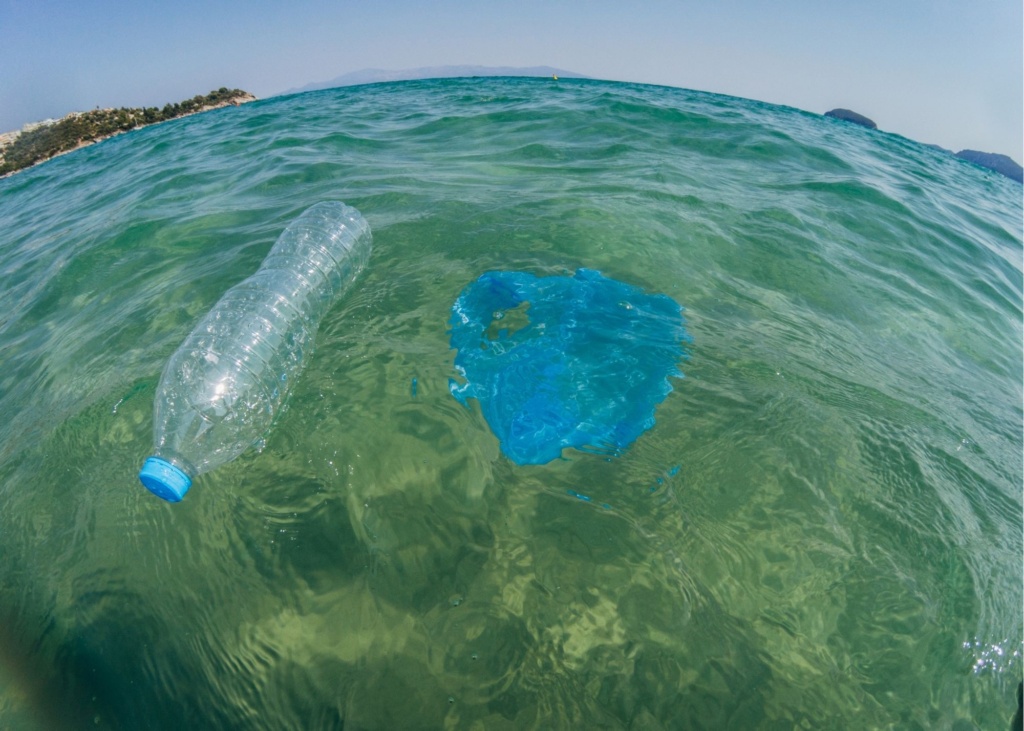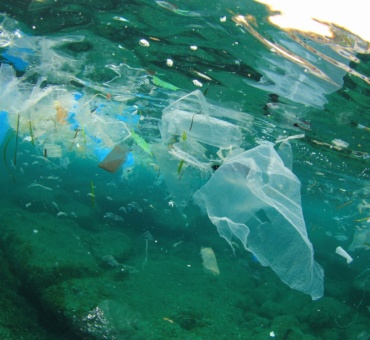How can we address the global issue of plastic waste? A new report published by the National Academies of Sciences, Engineering, and Medicine (NAS), titled Reckoning with the U.S. Role in Global Ocean Plastic Waste, not only evaluates the United States’ contribution to plastic production and waste generation, it also offers recommendations for reducing the amount of plastic that makes its way to the ocean.
The NAS study, required by the bipartisan Save Our Seas 2.0 Act of 2020, reports that the U.S. generated more plastic waste in 2016 than any country in the world—a total of 42 million metric tons (MMT) and estimates that in 2016 about 1 to 2 MMT of US-generated plastic waste entered the environment in the U.S. and abroad. Previous studies estimate that globally 8 MMT of plastic waste enters the world’s ocean each year.
The report found that the leading sources of ocean plastics include stormwater systems, wastewater discharges, atmospheric deposits, trash from boats and ships, beach waste, and transport from inland areas by rivers and streams.

These findings underscore the urgent need for enhanced tracking and monitoring to gather comprehensive data and address knowledge gaps by employing technologies such as sensors, biochemical markers, and tracers, as well as the implementation of standardized measurements to collect meaningful data sets that are scientifically robust and comparable.
Recommended Interventions
What steps can the U.S. take to reduce the amount of plastic waste entering the ocean? The report recommends that a variety of interventions be implemented across various stages of plastic’s path from source to ocean.
As a fundamental step, the study suggests that the U.S. reduce overall plastic production to affect change throughout the waste stream. And, with system-wide solutions in mind, the report also recommends that the U.S. improve waste management infrastructure and accelerate innovations in material and product design to develop plastic substitutes that degrade more quickly or are easily recycled.
Physical interventions include frequent cleanups, improving the methods used to remove plastic waste from the environment such as extracting plastic waste from stormwater, and reducing the amount of plastic waste that enters the ocean directly from vessels via the establishment of waste disposal infrastructure, incentives for land-based disposal of fishing nets and gear, better tracking methods, and increased enforcement.
Ultimately, the report recommends the creation of a federal research and policy strategy that focuses on identifying and implementing interventions throughout the plastic life cycle.
The NAS report not only provides an informative assessment of the U.S.’s contribution to the global ocean plastic problem, but it also offers actionable recommendations that, if implemented, may position the US as a global leader in reducing plastic pollution and creating a more circular economy. In this sense, the report presents an opportunity to effect positive change and transform our nation’s approach to mitigating plastic pollution.
What Can We Do?
As an organization, Channelkeeper works to reduce the flow of plastic pollution to the ocean through an array of advocacy, monitoring, outreach, and education initiatives and as a lead community voice supporting the transition away from single-use plastics. We conduct cleanups, advocate for local ordinances to minimize distribution of these single-use plastic items by using less harmful alternatives, and we support a film plastic recycling program in partnership with Abblitt’s Fine Cleaners that converts plastic waste into pellets used for decking and other household materials.
On an individual level, each of us can take steps to reduce the flow of plastics into the environment. We can lessen the plastic used in our lives and choose products that come in minimal packaging. We can leverage our purchasing power to choose more sustainable options by purchasing secondhand items and products in bulk, and by reusing items rather than buying new ones. We can also simply recycle the plastic items that we use. Finally, we can support government policies that reduces plastic use. Support government initiatives at the city, county, state, and federal level to reduce the use of single-use plastics and hold businesses accountable for the packaging they produce.
In November of 2022, every Californian will have an opportunity to take action against plastic pollution by voting in support of the California Plastic Waste Reduction Regulations Initiative. If passed, the law would require the State to take steps to reduce plastic waste including requiring that single-use plastic packaging, containers, and utensils be reusable, recyclable, or compostable. It would also tax producers of single-use plastics and use the revenue to fund recycling and environmental programs.
We invite you to learn more about this upcoming ballot initiative and support federal legislation like the Federal Break Free from Plastic Act of 2020, which would hold plastic producers fiscally responsible for collecting, managing, and recycling or composting their products after consumer use and would establish minimum percentages of products that must be reused, recycled, or composted.
Reducing the amount of plastic waste that finds its way into the environment will require the combined efforts of legislative action, producer responsibility, and consumer pressure. Channelkeeper is pleased to support the transition away from plastic and continues to take an active role in pollution reduction through ocean pollution monitoring and prevention, in addition to political advocacy and community education.

